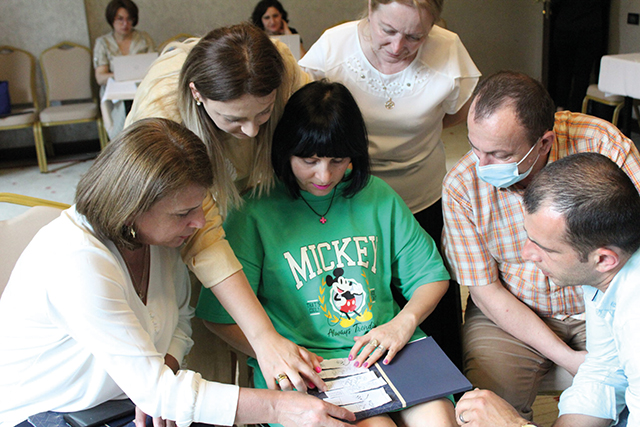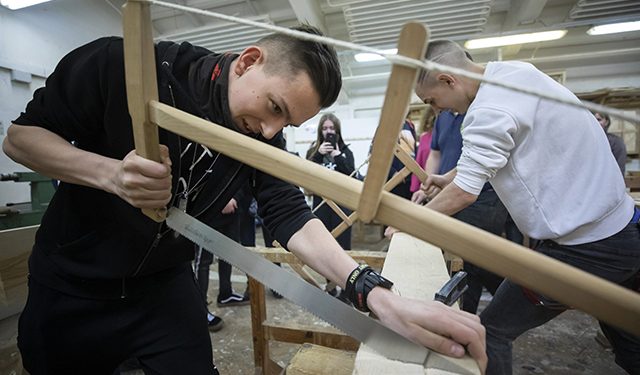Georgian employers note a lack of professionalism and low motivation in job seekers among the major obstacles to hiring personnel. However, the vast majority of companies, 88%, say that they do not cooperate with professional colleges and training centers and 31% can hardly see a benefit to such a partnership. Only 24% of employers report experience in working with vocational educational institutions by offering students internships and on-the-job training opportunities.
These and other findings are included in the labor market research released by the European Union (EU) and the United Nations Development Program (UNDP) on September 13.
Implemented by the research company ACT in cooperation with Georgia’s Ministry of Education and Science and the Skills Agency, the research focuses on the sectors of tourism and health/wellness, covering 14 municipalities in five regions of Georgia (the Adjara Autonomous Republic, Guria, Imereti, Kakheti, Racha-Lechkhumi-Kvemo Svaneti).
In Georgia, unemployment hovers around 18% on average, reaching 30% in some regions
The study blends desk research with focus group discussions and face-to-face or phone interviews, reaching out to over 520 respondents in the target regions. This includes representatives of tourism and health/wellness companies and vocational education and training (VET) institutions.
The research provides information about the most in-demand vocations and professions, examines professional qualifications needed in these market segments, analyzes whether the existing vocational educational programs respond to the market demand, and weighs the prospects of introducing and developing new educational programs. It also includes recommendations on how to promote collaboration of employers with educational institutions and how to make vocational education and training more responsive to the needs of youth, women, people with disabilities and representatives of ethnic minorities.

“Vocational education and training provides people with essential skills for employment, active citizenship and personal development,” said Colombe de Mercey, Team Leader for Governance and Human Capital at the European Union Delegation to Georgia. “To achieve these goals, it needs to be relevant to the labor market needs and national economic priorities. This labor market research helps estimate the gaps in Georgia’s vocational education and training, and set out the pathways for greater cooperation between the VET actors.”
88% of companies say they do not cooperate with professional colleges and training centers, and 31% cannot see the benefit
“The overwhelming majority of employers tell us they have no connection with vocational educational centers – even while also telling us they struggle to find staff with the right skills and experience,” said Nick Beresford, UNDP Resident Representative in Georgia. “We need to better understand this disconnect so we can close the gap for the benefit of both job seekers and business owners.”
Other speakers at the presentation of the EU/UNDP labor market research included Valerian Gobronidze, Deputy Minister of Education and Science of Georgia; Irakli Nadareishvili, Deputy Minister of Economy and Sustainable Development of Georgia; Tamar Kitiashvili, Head of the Skills Agency; and Giorgi Pertaia, President of Georgian Chamber of Commerce and Industry.
We need to better understand this disconnect so we can close the gap for the benefit of both job seekers and business owners
In Georgia, unemployment hovers around 18% on average, reaching 30% in some of the regions. Young people are particularly vulnerable to unemployment. In the age group of 15 to 29 years, the unemployment rate varies from 28 to 50% (Source: GEOSTAT). Further, 34% of Georgian youth are currently qualified as NEET as they are not engaged in employment, education or training. Only five percent of Georgian secondary school graduates choose to enter vocational education programs.
The EU and UNDP assist Georgia to create a high-performing educational system, introduce new learning models and tools, and inspire young people to study hard and strive for professional success. These efforts aim to improve youth education and close the gaps between Georgia and the European countries in the areas related to youth participation and engagement.














